I wrote a program that is supposed to draw the Mandelbrot fractal. Unfortunately, it seems to be drunk. Here is the output:

The relevant function:
void drawMandelbrot(float x, float y, float width, float height, float delta) {
for (float currentX = -2; currentX < 2; currentX += delta) {
for (float currentY = -2; currentY < 2; currentY += delta) {
Complex z(0, 0);
Complex c(currentX, currentY);
int iterations = 0;
do {
z = z * z + c;
++iterations;
}
while (z.getAbsoluteValue() <= 2 && iterations < MANDELBROT_ITERATION_LIMIT);
ALLEGRO_COLOR pixelColor;
float pixelX = (currentX + 2) / 4 * width;
float pixelY = (currentY + 2) / 4 * width;
if (z.getAbsoluteValue() <= 2) {
pixelColor = blackColor;
// Commented because you might not want this much junk in your terminal
//std::cout << "Stayed small! " << z.toString() << std::endl;
} else {
pixelColor = al_color_hsv(iterations / MANDELBROT_ITERATION_LIMIT, 1.0f, 1.0f);
// idem
//std::cout << "Blew up! " << z.toString() << std::endl;
}
al_draw_pixel(pixelX, pixelY, pixelColor);
}
}
}
I believe the Complex::operator... methods are correct, I suspect a logic error in the above function. When checking the output of the above (commented) std::cout statements, the absolute values of the complex numbers in the output is indeed less than 2, yet the image doesn't look like the plotted mandelbrot set.
Where is the wrong condition?
An mcve is included in the edit history.